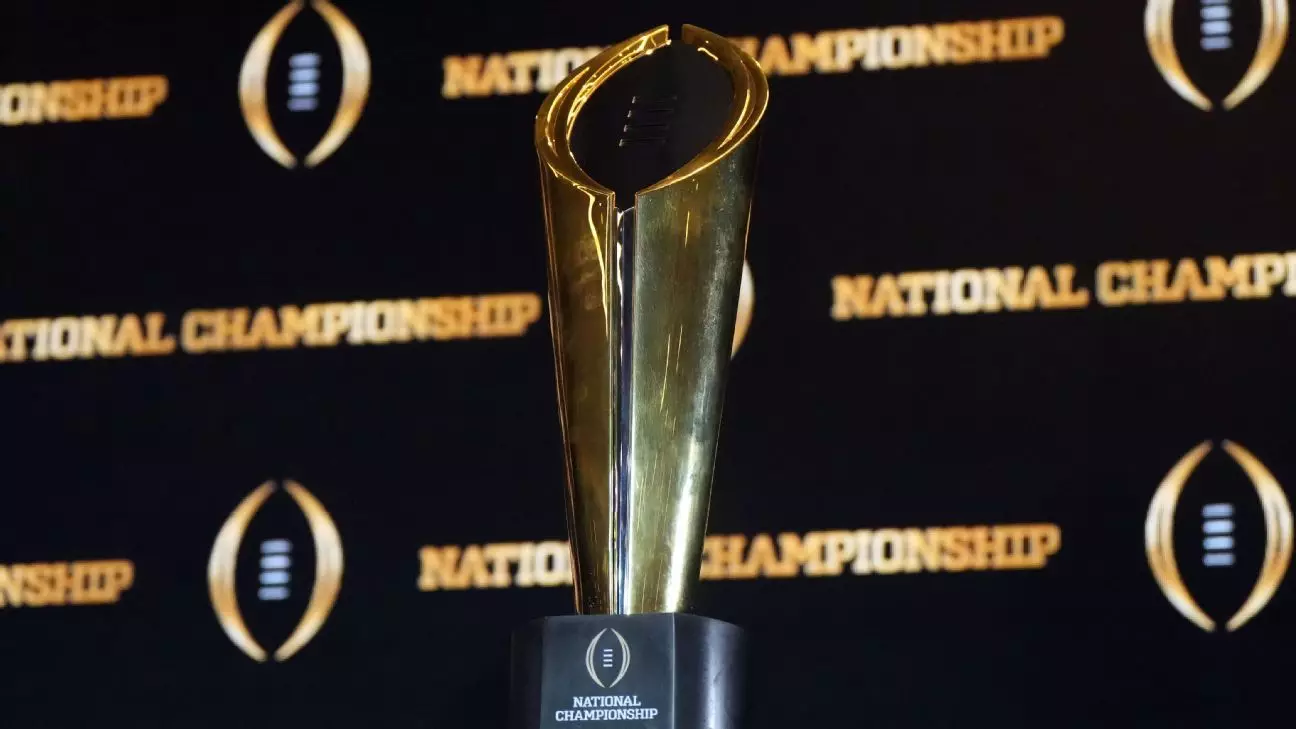The realm of college football is rife with excitement, rivalries, and the overarching quest for a national championship. However, underlying this enthusiastic atmosphere are the logistical challenges of scheduling, particularly when unexpected incidents arise. The recent decision regarding the dates and times of the Goodyear Cotton Bowl Classic and the Capital One Orange Bowl has ignited discussions about fairness, safety, and the complexities involved in scheduling high-stakes games.
The College Football Playoff (CFP) faced a unique challenge after the Allstate Sugar Bowl, where Notre Dame achieved a significant victory against Georgia. This game set the stage for an upcoming matchup between Notre Dame and Penn State in the Orange Bowl. However, concern emerged regarding the short turnaround for Notre Dame, casting a shadow over the fairness of competition. SEC Commissioner Greg Sankey recognized the potential disarray these scheduling issues could cause for both teams, and he proactively sought to make adjustments. Yet, his request to flip the game times was met with resistance from CFP Executive Director Rich Clark, highlighting the difficulties of altering schedules that have already been set in motion.
Following a tragic pickup truck attack in New Orleans that left numerous casualties, the safety of all involved became paramount. Clark’s decision to delay the Sugar Bowl by roughly 18 hours was made in light of these considerations. The swift response from local authorities and event organizers demonstrated a commitment to ensuring safety, but it also raised questions about the impact on team preparation and player health. The essence of college football is rooted in competition, and such delays inherently disrupt teams’ routines. The heavy burden on players heading into critical matches raises ethical questions about the responsibilities of governing bodies in balancing scheduling logistics and player welfare.
Sankey’s concerns reflect an overarching theme within college sports: the fight for fairness. As he articulated on “The Paul Finebaum Show,” the discrepancies in preparation time between Notre Dame and Penn State could skew the odds in this high-stakes scenario. Although both teams are competing at elite levels, the variance in rest periods could be viewed as an advantage/disadvantage scenario that complicates the integrity of the playoff system. Sankey’s assertion that this is not solely an SEC issue but rather one for all participating teams underscores the complex dynamics of collegiate athletics.
More than just the players and teams, community implications must also be addressed. Local economies depend heavily on events like the Cotton Bowl and Orange Bowl, and altering schedules can create a ripple effect, impacting fans who have made travel arrangements and preparations. Organizational frustrations grow as venue availability and community events are disrupted. The intricate web of stakeholder interests complicates the decision-making process, urging a delicate balance between sporting integrity and community obligations.
As the dialogue surrounding the scheduling issues continues, one must recognize that adaptability is a critical aspect of any sport. Sankey’s statement about the need to adjust in times of unforeseen challenges is a reminder that flexibility is essential in navigating these complexities. The college football landscape is dynamic and influenced by numerous external factors beyond the control of teams and officials. Moving forward, the discussions around scheduling will likely provoke deeper reflections on how the sport can truly prioritize fairness, safety, and community considerations. Ultimately, the essence of college football transcends just the games; it embodies the spirit of teamwork, resilience, and the shared love for the sport among players, fans, and communities alike.

